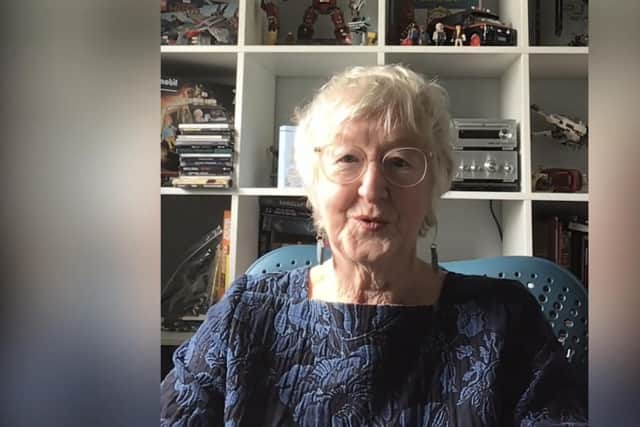The Scotsman Sessions #319: Finola Scott
When Finola Scott took early retirement back in 2005 – after more than 30 years as an English teacher in schools in and around Glasgow – she was determined to find something to do with the energy that had carried her through her teaching career, interrupted only briefly by the birth of her two children. Born and bred in Glasgow, Scott was living in Lenzie when she retired; and although she enjoyed courses on various different aspects of the arts, she increasingly felt that she would enjoy writing, and went along to the local Strathkelvin Writers Group, soon settling on poetry – and the occasional short story – as her preferred form of expression.
“There was just a neatness to it,” she says. “I loved the idea of writing something small enough that I could carry it around in my head all day, working on it, and polishing it.” Within five years of her retirement, Scott’s poems had begun to appear in pamphlets and anthologies; and she was also increasingly writing in Scots, the language which had surrounded her as she grew up in Clarkston in the 1950s, and which seemed like the only true voice for many of her poems.
Advertisement
Hide Ad“It really is all a matter of the individual poem,” says Scott, who always taught Scottish poets including William Soutar, Norman McCaig and Liz Lochhead as part of the curriculum during her schoolteaching days. “I find that each poem has a voice, and I have to respond to that. Of course the Scots I heard as a child was heavily influenced by Glasgow’s own language, and I have had to work at learning to differentiate that from a more traditional Scots, particularly for my historic poems; but I find all of that so interesting, and a real pleasure.”


Finola Scott’s poetry collection Much Left Unsaid was published by Red Squirrel Press in 2019; and she is now well known, in her early 70s, both as a writer and as a performer of her work, enjoying the title of “Scotland’s only slam-winning granny.” Some of her poems reflect on her own experience of family life; but others tackle huge historical themes in both tragic and comic voices, with subjects ranging from the bitter oppression of Scotland’s Presbyterian Covenanters in the 17th century – now a relatively neglected aspect of our history – to comic monologues in the voices of women from ancient Scotland, lamenting the fancy ways of the Romans, or the absence of a husband obsessed with building stone circles in Orkney.
In this session specially recorded for The Scotsman, Finola Scott reads seven of her poems, all in Scots, which were recently included in the first Modren Makars collection published by Tapsalteerie Press. Their themes are hugely varied, and include a 21st century scene on a Glasgow bus, a heart-stopping moment of love for a tiny granddaughter taking her first independent steps, and the thoughts of a mid-19th-century Irish woman waiting on a hill above Greenock to see whether her famine-starved husband has made it over on the boat from Belfast.
Most of them, though, have that quality of dramatic monologue that makes Scott’s poetry as powerful in performance as on the page. “After 30-odd years as a teacher,” says Scott, “I hope I know how to stand in front of an audience, to use my voice, and to make sure that everyone is engaged with what’s going on. For me, writing is all about communication; and that’s why I love to see my poetry published, in magazines and pamphlets all over the UK, and why I love to perform it to live audiences, whenever I can.”
Modren Makars: Yin is published by Tapsalteerie, £10